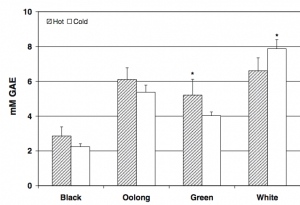Have you ever experienced jitters from drinking coffee? You are not alone. And, you are definitely not out of options. Matcha could be the right morning beverage for you.
Matcha is a finely ground green tea powder originating from Japan. Historically, matcha was first widely used by Zen Buddhist monks in tea ceremonies and meditation and continues to be a key part of their practice today. Matcha creates a state of calmness and mental clarity that pairs with their appreciation for the simple things in everyday life.
Why is matcha different from common teas and an effective substitute for coffee? The magic happens in farming and processing.
Three weeks before tea leaves are harvested from Camellia Sinensis, the plants are grown in the shade. Without direct sunlight, photosynthesis slows down, producing more l-theanine. L-theanine is a neurologically active amino acid that stimulates the production of alpha waves in the brain. Alpha waves put the mind in a deeply relaxed and alert state that is often achieved in mindfulness meditation.
L-theanine can also bind to caffeine. Caffeine is five times as concentrated in matcha than regular green tea. Nonetheless, because l-theanine binds to caffeine to stabilize the release of energy, matcha does not bring sudden peaks of energy that could be recognized as anxiety.
The high amounts of l-theanine and caffeine are maintained in the processing methods all the way to when matcha is served. After harvest, the leaves are steamed so that oxidation is minimized. Not only are the colour and fragrance conserved, but most importantly, the active ingredients remain intact. The dried leaves are then ground into powder to be consumed. Unlike most teas where they are enjoyed by steeping in water, matcha powder is dissolved and consumed as a whole so that all the benefits is retained as best as possible.
Matcha can keep us awake and alert while relaxed and at ease. Matcha has been the perfect way to start my day for two years. I hope it works for you as well!
~Shanna Wang






